Vladimir Putin hugs a child on TV as his missiles kill them
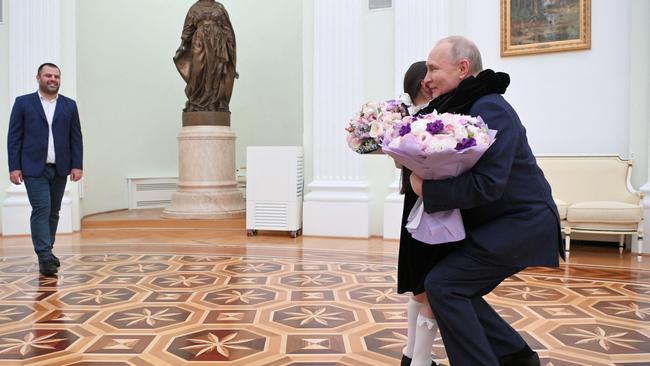
Because there is nothing Vladimir Putin cares more about than children and he wants us to know that. On June 1, Children’s Day in Russia and Ukraine, he declared in a broadcast: “The biggest pleasure and happiness is children.” On the same day, one of his ballistic missiles killed a nine-year-old girl and her mother in Kyiv. This was part of an assault that struck not just homes, but a kindergarten and a medical clinic. In other words, an everyday event in Ukraine’s capital.
An estimated 550 children have been killed in attacks – and many more injured – since Putin launched his full-scale invasion of Ukraine 500 days ago.
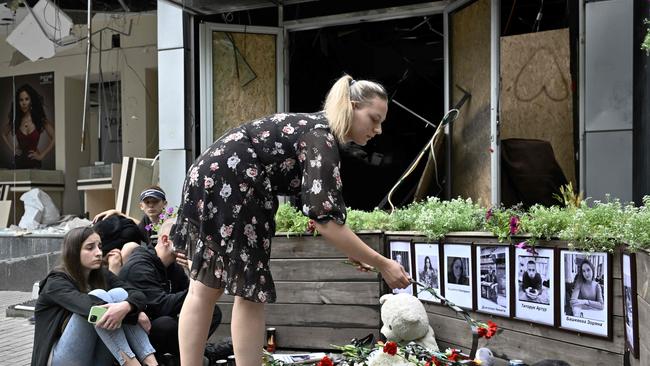
From the start, Olena Zelenska, the wife of the Ukrainian president, has emphasised this consequence of the indiscriminate bombing of residential areas. Her first statement, put out just over a week after the onslaught began, declared: “Perhaps the most terrifying and devastating aspect of this invasion are the child casualties.
“Eight-year-old Alice who died on the streets of Okhtyrka while her grandfather tried to protect her. Or Polina from Kyiv, who died in the shelling with her parents. Fourteen-year-old Arseniy was hit on the head by wreckage, and could not be saved because an ambulance could not get to him on time because of intense fires. When Russia says that it is ‘not waging war against civilians’, I call out the names of these murdered children first.”
Those murders of children have continued inexorably since, though it is only a few that get reported here, if the attack is most obviously heinous - for example, when the 14-year-old twin sisters Yuliya and Anna Aksenchenko were among 11 fatalities ten days ago in a Russian attack targeted on a pizzeria in Kramatorsk. Or when the vulnerability of the victim is especially poignant. Such as Liza Dmitrieva, killed a year ago this week, in a missile attack on the western Ukrainian city of Vinnytsia, then 240 miles from the conflict’s front line. One of the guided missiles hit the city’s medical centre.
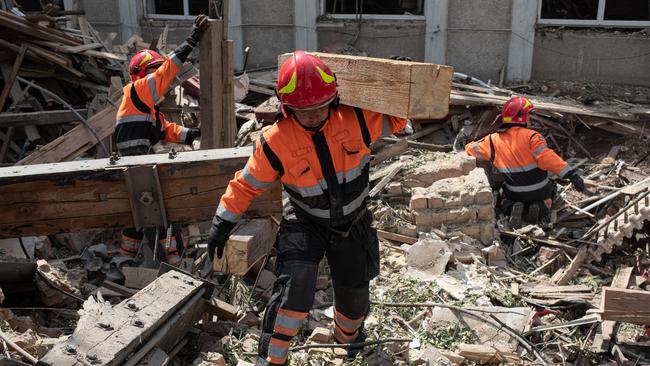
The 23 fatalities included a neurologist and mother of three, Natalia Falshtynska, who was working there. Four-year-old Liza was on her way back from the medical centre, where she had gone for her regular speech therapy. Liza had Down’s syndrome. She was, in fact, a sort of poster girl for the condition in Ukraine, as her mother Iryna – terribly injured in the same attack – had chronicled her daughter’s progress on social media. The final instalment was phone film of the little girl on the day of her death talking merrily to her mother as she pushed her own pram to the appointment (she had grown sufficiently strong to do this).
Her mother had recorded, two years earlier: “For us, Liza is a fighter and a hero, a strong little girl whom we love to the point of madness.” Those of us who have children with that condition will recognise the feeling.
But this is just one of many hundreds of children slaughtered at the hands of the Russian military – whether official, or the Wagner group (whose activities in Ukraine, as Putin finally admitted last month, were funded directly by the Kremlin). That mercenary army has been responsible for some of the worst depravities.
Two of its (ex) commanders, Azmat Uldarov and Alexey Savichev, gave details in an interview videoed by Gulagu.net, a Russian human rights group, of what they had done as part of the “clearing up” of residential buildings in Bakhmut and Soledar. “I killed children with my bare hands,” said Uldarov. “As we entered Soledar and Bakhmut we got the order to destroy everyone, men, women, children . . . She was screaming, a little girl, don’t know if she was five or six. And I shot her. A controlled shot [in the head].”
The wider picture was painted by the Independent International Commission of Inquiry, a group of legal experts commissioned by the UN. Last September these jurists said that they had documented cases in which Ukrainian children had “been raped, tortured, and unlawfully confined . . . There are examples of cases where relatives have been forced to witness the crimes.”
Alongside this, President Putin and Maria Lvova-Belova, Russia’s “commissioner for children’s rights”, have been issued with arrest warrants by the International Criminal Court for abducting at least 20,000 Ukrainian children. For Putin, perennially obsessed with the imploding Russian population, these children are nothing less than the spoils of war.
The plight of those abducted children’s parents, as they desperately try to get them returned, is all too obvious. But there is a much wider psychological terror afflicting every child in Ukraine – and their parents. As Sonia Khush, Save the Children’s director in Ukraine, said: “The suffering that children . . . have had to endure since full-scale war has erupted is unimaginable. No child in Ukraine is safe. With the threat of missile attacks ever-present, a state of constant distress has become the new norm for children. The risk to children’s mental health and the potential for long-term harm cannot be overestimated.”
I recognise that in the Ukrainian boy we have been hosting, along with his mother, Vera, for a year now. His favourite playground in Kyiv, in Shevchenko Park, had been hit in the early months of the onslaught. Fortunately, no child was there at the time. But the terrorising effect was profound. And as one whose child had also played there said: “You know, as a mother, I’m scared three times more than other people.”
This is why so many Ukrainian mothers have left with their children – the numbers are in their millions. None of them can be happy with the thought of their husbands, alone – whether or not their men are actually involved in the fighting. And for many of these Ukrainian mothers, there is also the thought that they, too, could be helping the defence of their nation.
Or as Vera put it to me, soon after she arrived in the UK: “I had to decide whether to act as a patriot, or as a mother.”
I haven’t dared ask her what she thinks of Putin’s latest film portraying his deep concern for the feelings of children.
The Sunday Times

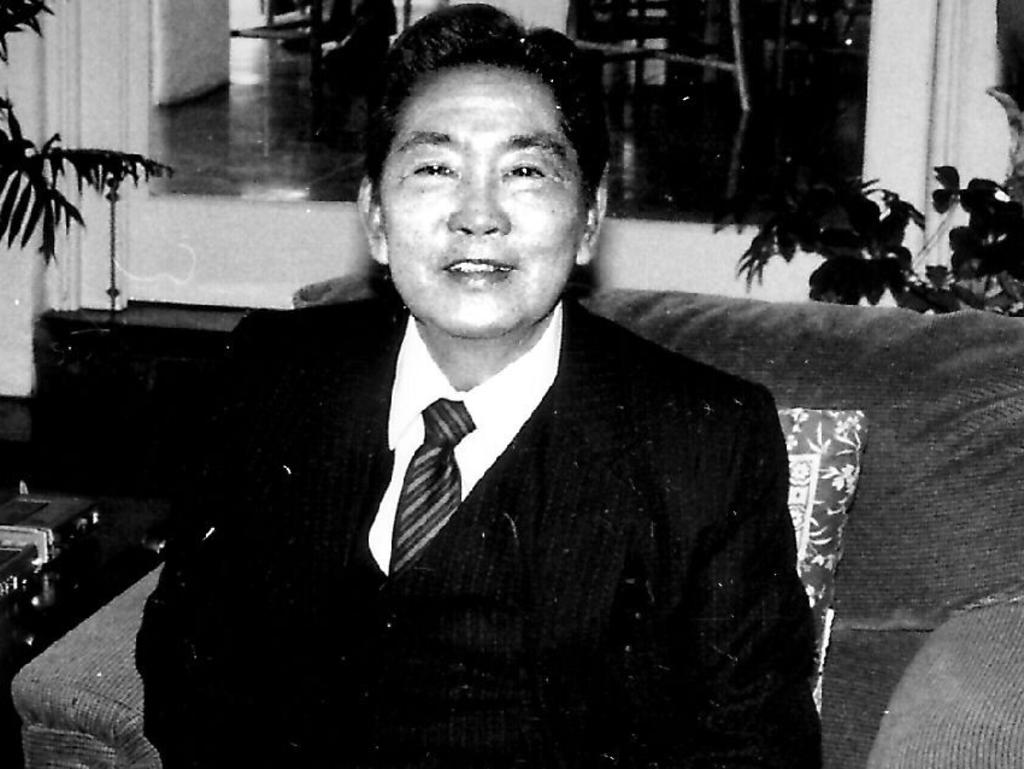

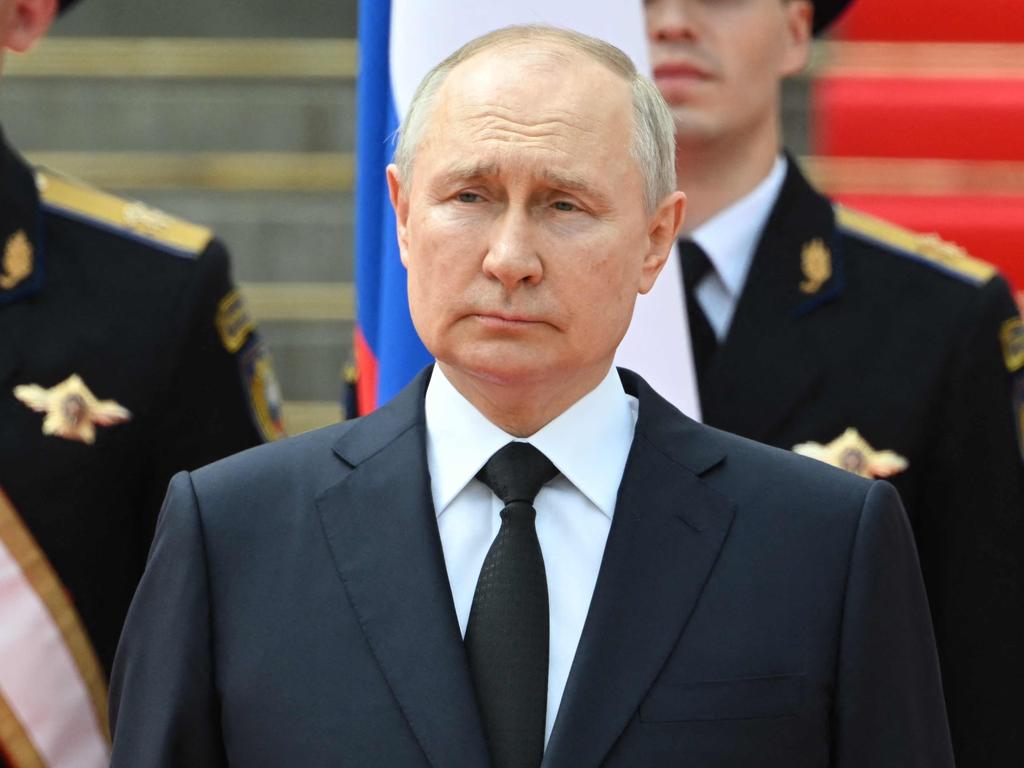
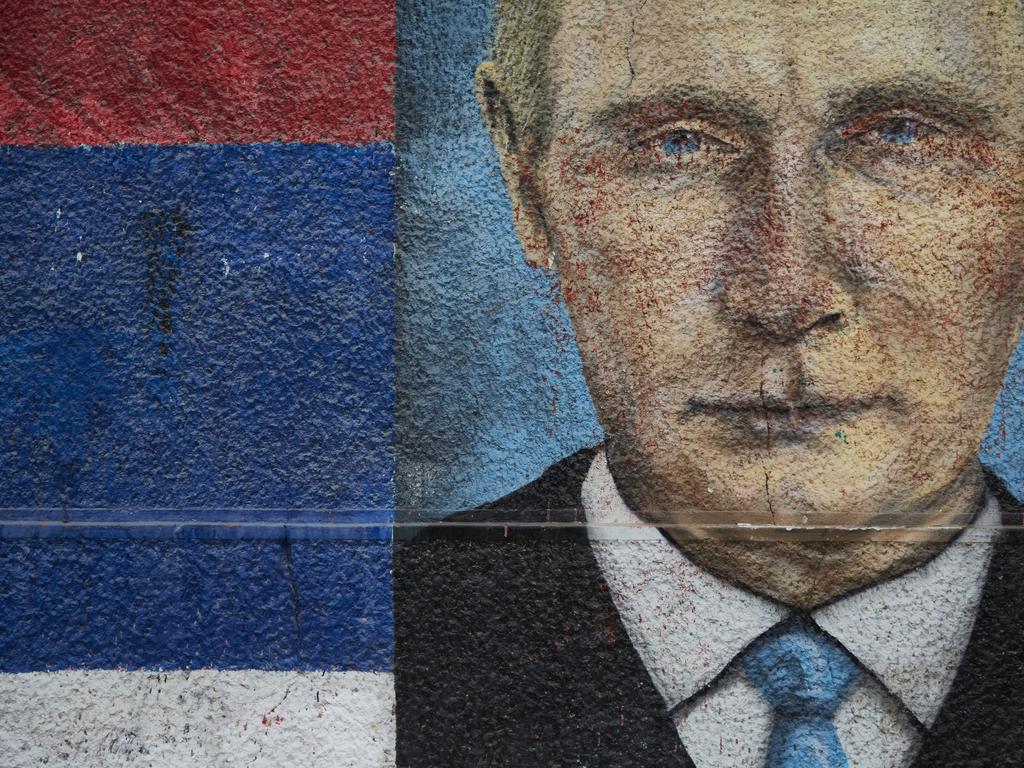
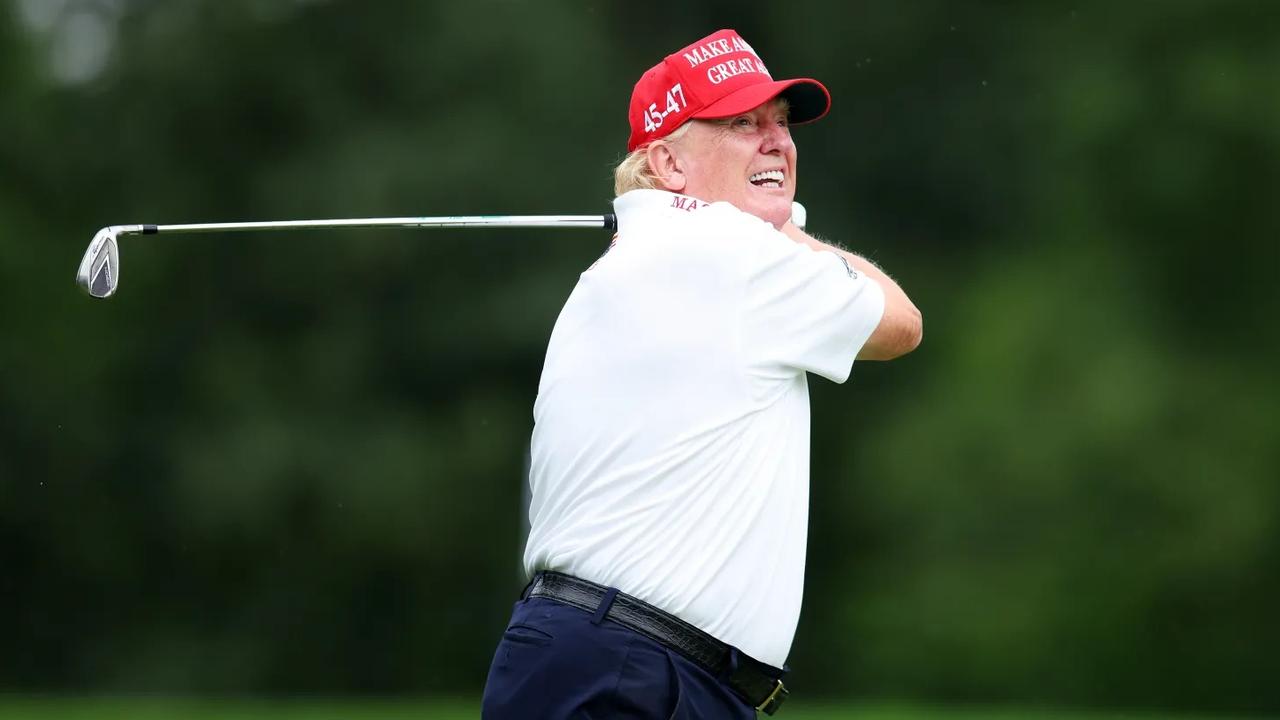
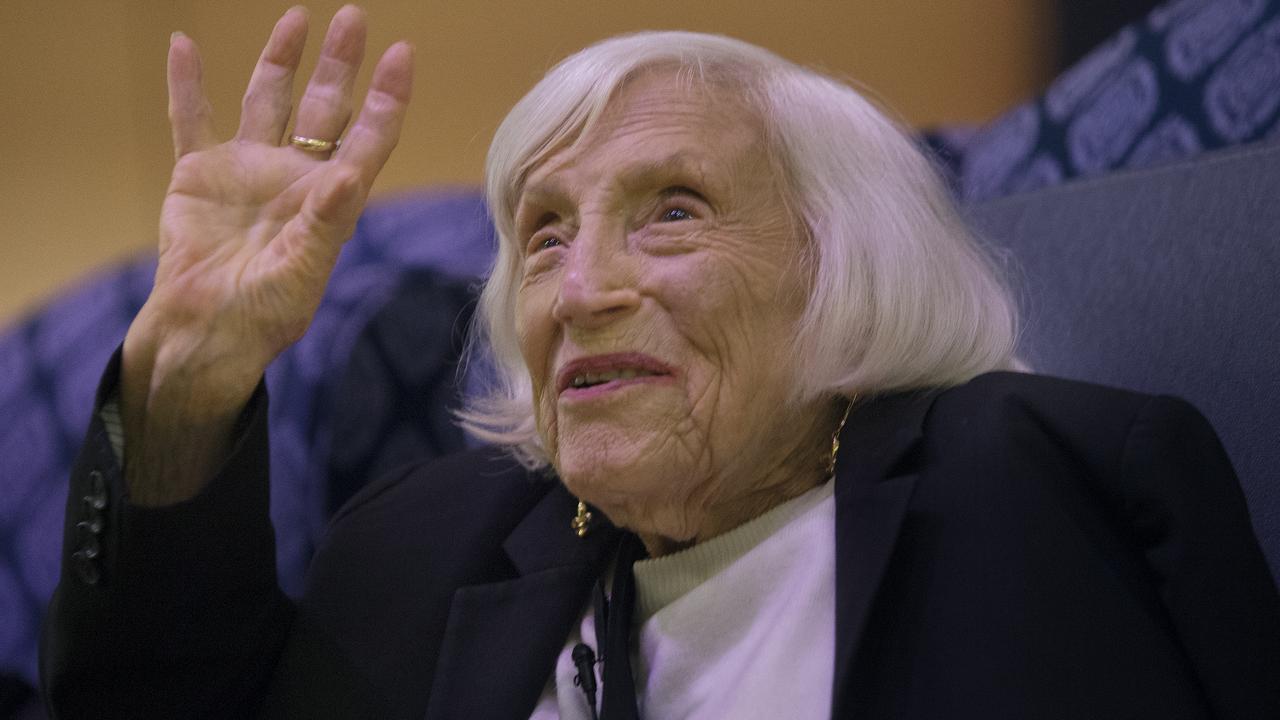
Vladimir Putin has let the world know how much he loves children. Last week the Kremlin released film of the Russian president welcoming into his office eight-year-old Raisat Akipova. The little girl runs up to him, leaping into his arms, and he cuddles her. Explaining this touching scene for the benefit of the viewers, Putin tells her how he had seen pictures of her “crying” when she had missed meeting him on his recent visit to her home city in Dagestan. “Your reaction upset me,” he says.